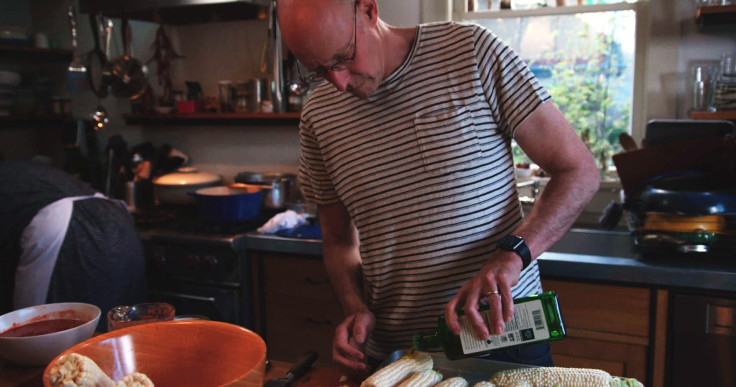'Cooked' On Netflix Is A Different Kind Of Food Porn; Michael Pollan Boils Down Cooking To Its Elements

"Cooked," a new four-part docuseries on Netflix that explores the ever-evolving relationship between humans and what we eat, begins with a montage and a message. The montage consists of clips of the dozens and dozens of cooking and food touring shows currently taking up space on cable television. The radical message: we spend way too much time watching people cook and not enough time actually cooking. "Cooked" hopes to change that.
"It is about reclaiming something we may have lost," says Kristen Vaurio, a senior producer on the series. "It’s not trying to wag fingers at people to get them back in the kitchen. It is about encouraging them to do something they may not have otherwise and the rich, cultural traditions you take back [when you do that]."
The series, is not the beginning of this proposed movement. The story of the documentary "Cooked," all four episodes of which premiered Friday on Netflix, began a couple years earlier, in 2013, when journalist Michael Pollan published "Cooked: A Natural History of Transformation," a book chronicling Pollan's attempts to teach himself to cook from the ground up.
Both the book and the series divide the subject matter into four elemental categories: fire, water, earth, and air. Each episode of the series, created with Michael Pollan by Alex Gibney's Jigsaw Productions — the team that produced the 2015 controversy courting documentaries "Going Clear: Scientology and the Prison of Belief" and "Steve Jobs: The Man in the Machine" — focuses on one of those elements, breaking down the process of food to its most basic foundations.
That approach leads to a fascinatingly anthropological analysis of the history of humans in the kitchen. For example, in the "Earth" episode, which largely centers on fermentation, Pollan suggests that modern agriculture developed around, not food, but the desire to grow fermentable grains for beer. In the "Water" episode, Pollan notes that the invention of the pot to boil water ushered in the birth of "cuisine."
"Cooked" comes from the standpoint that by showing how all cooking evolved from the most basic of human customs and natural processes, getting in the kitchen might seem like a more accessible venture.
However, that scientific study means some unsavory shots make it to the screen that would not appear in your standard food show.
Sure, sometimes Anthony Bourdain eats something gross, but in "Cooked" viewers peer down the microscope at the growth of the mold and bacteria that creates a fine cheese. The show captures how the origins of chocolate lie in "some rotten bean." In an excursion to Australia, Pollan highlights how the Martu spend weekends hunting game and cooking over a campfire to stay in touch with the natural world and their cultural roots. At one point an elderly woman snaps the limbs of an iguana onscreen. It is fascinating for sure, but sometimes hard to watch.
"We were trying to pull apart the process as much as possible," says Vaurio. "It isn’t really made in the mold of a traditional cooking show. It was never supposed to be that. We were trying to make something new. That stuff is there, but it is a garnish."
Watch the trailer for "Cooked" below:
Traditional food porn elements are there for sure. Sister Noella Marcellino's wood barrel-made cheese is a delicious peek into an old world tradition. You can almost smell the smoke of North Carolina pitmaster Ed Mitchell's barbeque through the screen. However, that is only one facet of a show with a much bigger scope than "Diners, Drive-Ins and Dives." Scientists, sweeping helicopter landscape shots, and deeply personal anecdotes all make it into "Cooked."
"We were calling it the 'Cosmos' of food," says Vaurio. The comparison is apt.
In fact, there is one glaring omission from most of the show's short four hours: eating. While there is much talk of food, Pollan is rarely seen chowing down. There is very little time spent in a restaurant. The series' focus lies elsewhere.
"I don’t know that it was conscious," says Vaurio. "We were all just absorbed in the process and what was going on in the food at a molecular level. We were looking at a moment in the process. It is more about the process than the finished product, the finished plate."
Vaurio says Netflix was a perfect fit for a show this unconventional.
"I don’t where else it could have been [except Netflix]. This is essentially four hour-long, standalone documentaries, which is not really a traditional show. I don’t know that it would have been the show that is without them -- quality-wise as well."
Will "Cooked" revolutionize the way people feel about cooking, or even cooking shows? Probably not. However, for viewers just as interested in the history and community of food rather than the flavor, "Cooked" is a fascinating rabbit hole to go down.
© Copyright IBTimes 2025. All rights reserved.






















